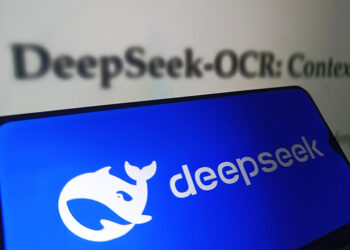Select Language:

Climate change skeptics are circulating an AI-generated paper that challenges the notion of human-caused global warming. Experts are raising alarms about the proliferation of research that is fundamentally flawed yet presented as impartial and rigorously logical.
This paper dismisses climate models that support the idea of human-induced global warming and has gained traction on social media, being promoted as the first “peer-reviewed” study on the subject authored by artificial intelligence (AI).
Entitled “A Critical Reassessment of the Anthropogenic CO2-Global Warming Hypothesis,” it references sources that are disputed by the scientific community, as per insights from experts interviewed by AFP.
Researchers in computational science and ethics have also warned about the misleading claims of objectivity found in papers produced by AI.
This latest study, which asserts that it was fully written by Elon Musk’s Grok 3 AI, has spread online, particularly after a blog post by COVID-19 skeptic Robert Malone garnered over a million views.
“Following the chaos surrounding man-made climate change and the influence of pharmaceutical companies on evidence-based medicine, the integration of AI into government-funded research will likely become normalized, with standards established for its use in peer-reviewed publications,” Malone stated.
Extensive scientific consensus ties the burning of fossil fuels to rising global temperatures and increasingly severe weather events.
Facade of Objectivity
Academics warn that the surge in AI usage in research poses risks of creating a false sense of objectivity and insight within scientific studies.

“Large language models lack the ability to reason. They are merely statistical models that predict subsequent words or phrases based on their training data. This does not constitute legitimate research,” asserted Mark Neff, a professor of environmental sciences.
The paper claims that Grok 3 “authored the entire manuscript,” with contributions from co-authors who “played a vital role in shaping its direction.”
Notably among the co-authors is astrophysicist Willie Soon, a well-known climate skeptic who has received over a million dollars in funding from the fossil fuel sector throughout the years.
Disputed works authored by physicist Hermann Harde and Soon himself served as references for the AI’s examination.
Microbiologist Elisabeth Bik, who monitors scientific misconduct, pointed out that the paper fails to clarify how it was constructed: “It references datasets that were foundational to the paper but does not include any prompts. We know nothing about how the authors directed the AI to analyze the data.”
Ashwinee Panda, a postdoctoral fellow focusing on AI safety at the University of Maryland, expressed concern that the claim of Grok 3 being the author creates an unverifiable illusion of impartiality.
“Anyone can assert, ‘I didn’t write this; the AI did, so it must be unbiased’ without providing evidence,” he observed.
Opaque Review Process
The journal in question, along with its publisher—apparently a singular publication—does not seem to be affiliated with the Committee on Publication Ethics.

The paper acknowledges “the thorough edits provided by a reviewer and the editor-in-chief,” who is identified on the website as Harde.
However, it does not clarify whether it underwent open review, single-blind, or double-blind review, and its submission and publication occurred within just 12 days.
“That AI might effectively plagiarize subpar papers” comes as no surprise to Gavin Schmidt, NASA’s chief climate scientist, who remarked, “but this rehash has equally little credibility,” he told AFP.
AFP reached out to the paper’s authors for further details about the review process but did not receive an immediate reply.
“The application of AI is simply the latest tactic to reframe an old, discredited argument as if it were a groundbreaking one,” stated Naomi Oreskes, a science historian from Harvard University, in an interview with AFP.





